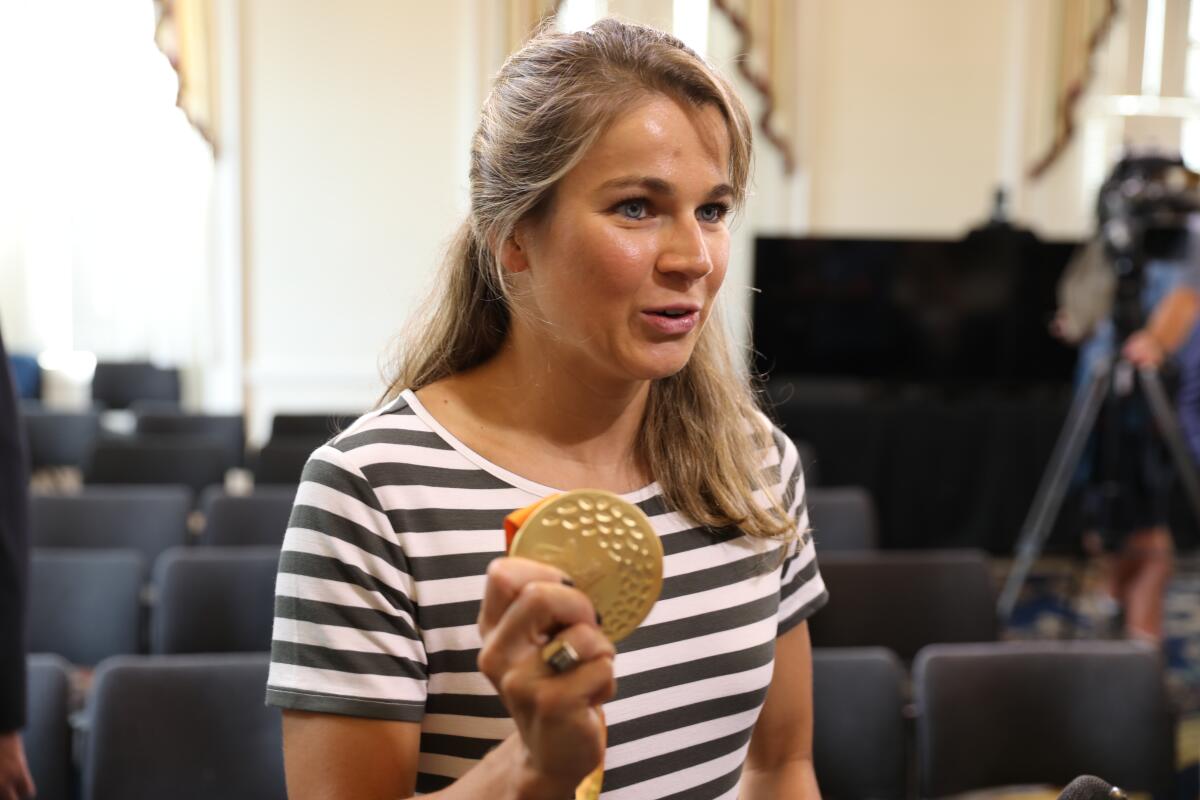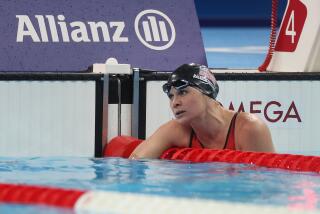Op-Ed: If the Paralympics won’t model equity and inclusion, who will?

- Share via
Becca Meyers, a decorated Paralympic swimmer who is deaf and blind, suffered a huge loss this summer — more than a month before the opening ceremony even begins. When the Games start on Aug. 24 in Tokyo, after the Olympics, she will not be among the competitors.
The U.S. Olympic and Paralympic Committee denied Meyers’ request for a personal care aide to help her travel to and navigate the setting. Without such an aide, she had to withdraw from the Games. Officials are allowing only “essential staff” to attend, to minimize COVID risk — as they should. But they were wrong to consider an aide for Meyers inessential.
Their mistake creates a learning opportunity. They appear to have confused equality with equity.
Being treated equally means people are given the same resources. On the other hand, equity allocates the appropriate resources to give everyone a similar chance to reach the same outcome. Athletes who can get by at the Paralympics without a personal care aide should do so, but Meyers needs one. Equal treatment in this case is beyond silly; it’s inhumane.
So far, rather than reconsidering the bad call, the committee has remained committed to the regulations put in place to mitigate the spread of COVID-19. They’re forgetting about their commitment to inclusion and the spirit of the Paralympic Games.
Currently “essential staff” attending the Olympics includes a long list people, mostly coaches and medical staff. Yet other roles have been deemed essential, for example the U.S. delegation was led by First Lady Jill Biden. The final decisions defining essential staff lie in the hands of the United States Olympic and Paralympic Committee, not the Tokyo organizing committee — who have a playbook for a variety of staff, including press, Games volunteers and contractors. In Meyers’ case, her mother was identified as her personal care aide. Notably, family members are not being allowed to attend as spectators, but familial aides are common.
It wouldn’t be much of a leap to create an exception for necessary personal care aides. Notably, concessions have already been made, including athletes who are nursing being permitted to bring their infants to the Olympics and the U.S. gymnastics team opting to stay in a hotel outside the athlete village.
Yet, in Meyers’ case, alternatives weren’t provided. Furthermore, the empathetic response from Rick Adams, the committee’s chief of sport performance and national governing body services, stated, in part, “I fully empathize with your concerns.” This type of response is classically focused on pity, not equity.
Meyers’ treatment by the U.S. Olympic and Paralympic Committee also, sadly, follows a familiar script. Elite athletes with a disability have always had to carry an extra workload. It’s getting old.
The disruptions of the pandemic showed how flexible organizations and individuals can be. I fear that as the world puts the pandemic behind it, we will see a return to inflexibility.
During the pandemic, organizations were flexible about working from home, work hours and remote training options — many of which benefited working parents and some people with disabilities. But as we began to exit quarantine, there has been less certainty about how flexible organizations will be. Returning to the office may be on the horizon — yet this doesn’t benefit everyone.
The committee’s decision to not allow Meyers’ aide would seem to be another example of needless inflexibility. It doesn’t have to stand that way in the history books.
U.S. officials could tap into the flexibility that we all had to practice over the past 17 months. The committee has time to fix its mistake: Invite both Meyers and her aide to go to Tokyo.
Megan MacDonald is an associate professor of kinesiology in the College of Public Health and Human Sciences at Oregon State University.
More to Read
A cure for the common opinion
Get thought-provoking perspectives with our weekly newsletter.
You may occasionally receive promotional content from the Los Angeles Times.










